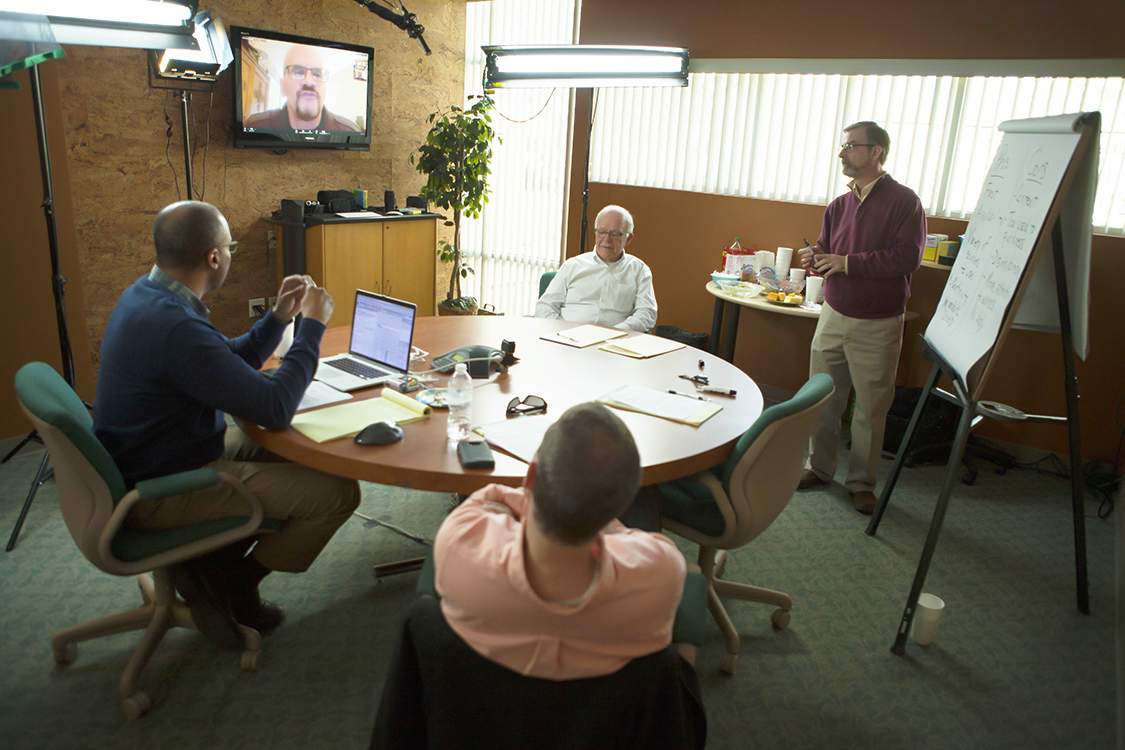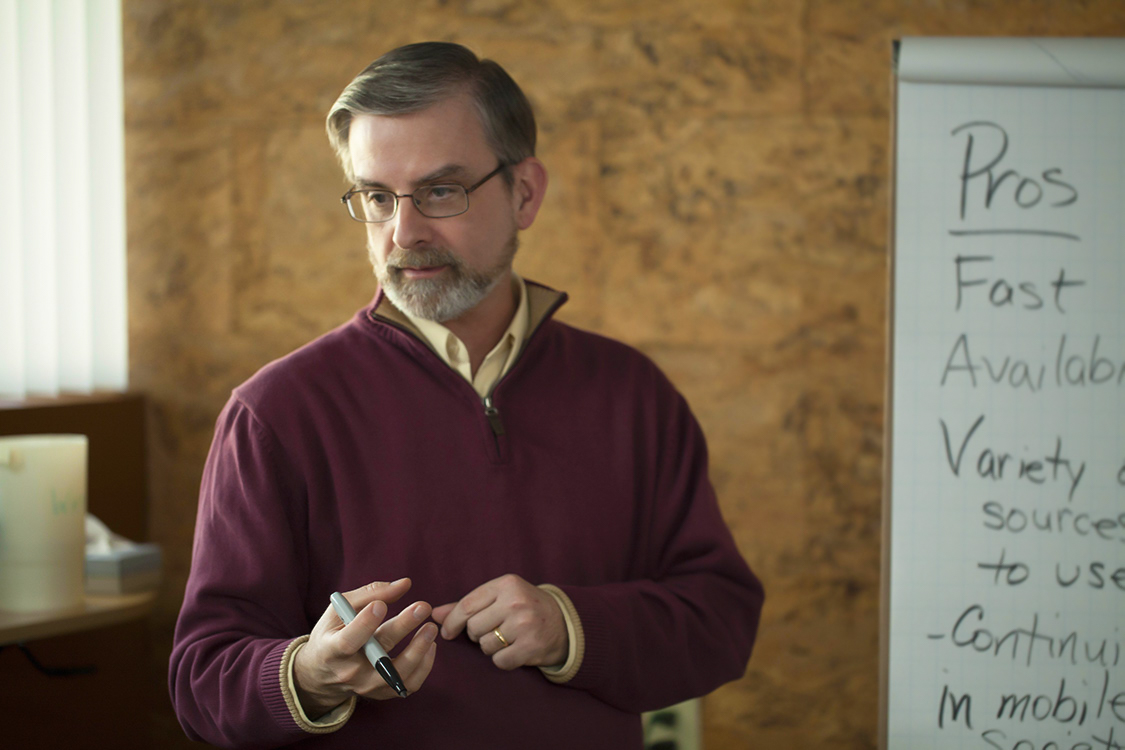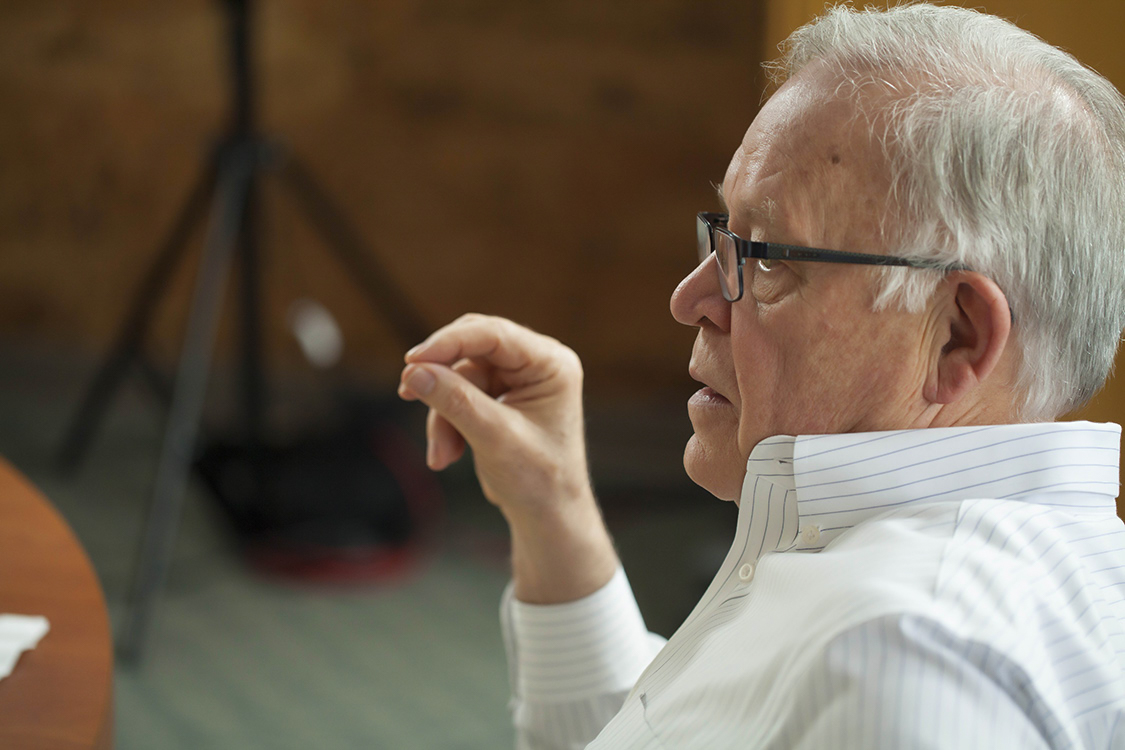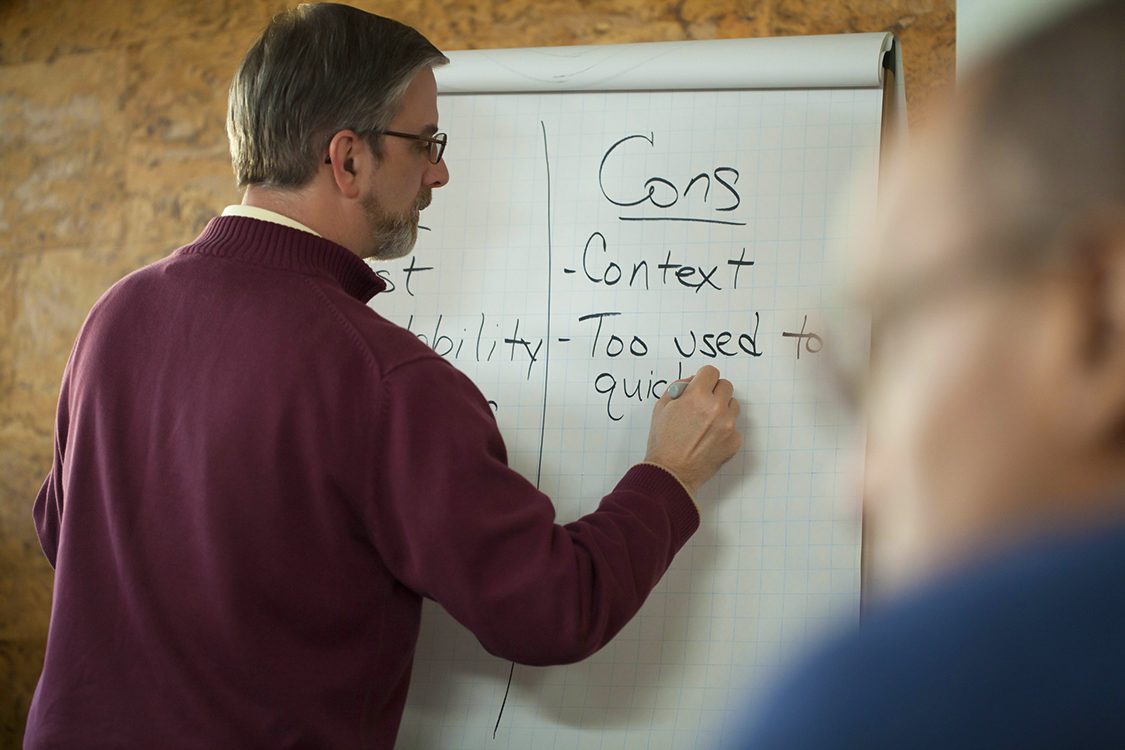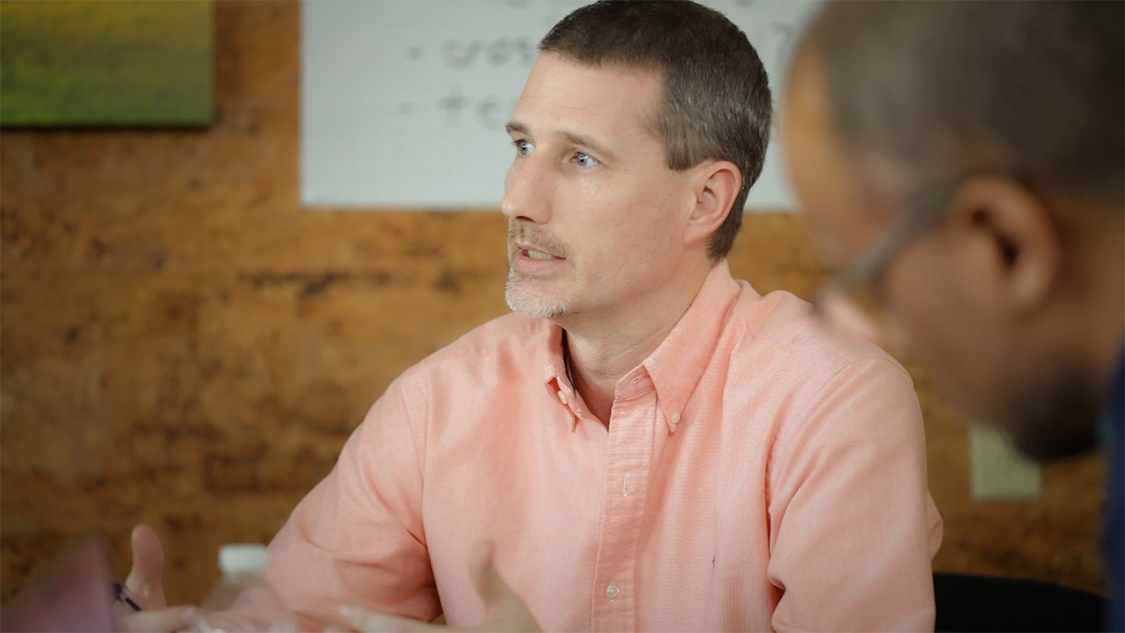
This week Jeff Forrey and I sat down with a counselor and two communication specialists. And don’t worry. It wasn’t because our work relationship is deteriorating.
We actually brought them to our offices to discuss a new project we’re working on. More on who joined us and why in a bit …
But first I wanted to mention that during our discussion, one of our guests, Brad Hambrick, counseling pastor at The Summit Church in Durham, NC, pointed out why it’s so hard for pastors to invest in building lay counseling ministries. Here’s what he said:
-
Pastors have to keep in mind the volunteer hours of their congregants. Pastors want to choose ministry initiatives that create the maximum kingdom impact through the members of their church while protecting those members from burnout.
One reason lay counseling ministries are a difficult option for pastors to choose is the member-to-ministry ratio is very low. A lay counselor can usually only minister to one to three individuals or couples in a given week due to the private nature of counseling.
This is one significant advantage of offering care, whenever possible, through informal friendship ministry. It allows for the “emotional weight” to be shared by more individuals and enables a church to be a better steward of its members/volunteers.
For many pastors the question boils down to this: Do I equip a few to help a few? Or do I put something else in place? Brad’s given a lot of thought to this issue; you can check out some of his thoughts here.
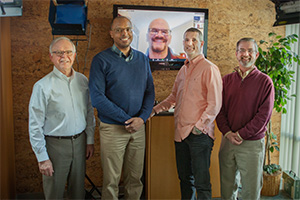
Brad shared his ideas in a larger discussion on how the CareLeader.org team can create resources that reduce a pastor’s workload by equipping lay people to do more significant ministry in the context of their friendships.
In addition to Brad, we were joined by Dr. Tim Muehlhoff, a communication specialist and professor at Biola University, La Mirada, CA, and Dr. Benson Fraser, a communication and theology professor at Regent University, Virginia Beach, VA.
Here are a few of the topics we discussed:
- Is it better to create a curriculum that equips lay people to have better relationships in general? Or is it better to create a curriculum that focuses on helping members and attendees develop better friendships?
- What beliefs, attitudes, and behaviors/skills must a person have in order to be a good friend?
- The many ways social media/technology can be used to strengthen relationships.
- How do we keep believers from getting confused by the call we have to love everyone—including our enemies—and the reality that we connect better with some people than with others?
- Why those who form friendships are more likely to stay involved in and connected to a local church.
- How to detect whether a friend isn’t as committed to change as he may say he is.
- Why so many friendships end, and why people give up on them.
- Why some friends/married couples experience high levels of conflict, and what they can do to fix it.
- Why it’s important to remember that each person in a relationship defines and experiences things like respect, acknowledgment, commitment, etc., differently, and how this is often the key to avoiding and resolving conflict.
Those are just a few of the topics we discussed. We’re grateful for Tim, Ben, and Brad spending their time with us. Those guys are sharp!
If you have any thoughts on those questions, I’d love to hear your responses. Just email me at samhodges@careleader.org.
Here are more pictures from our planning session. And in the coming weeks, I’ll have more information to share from our discussions.
